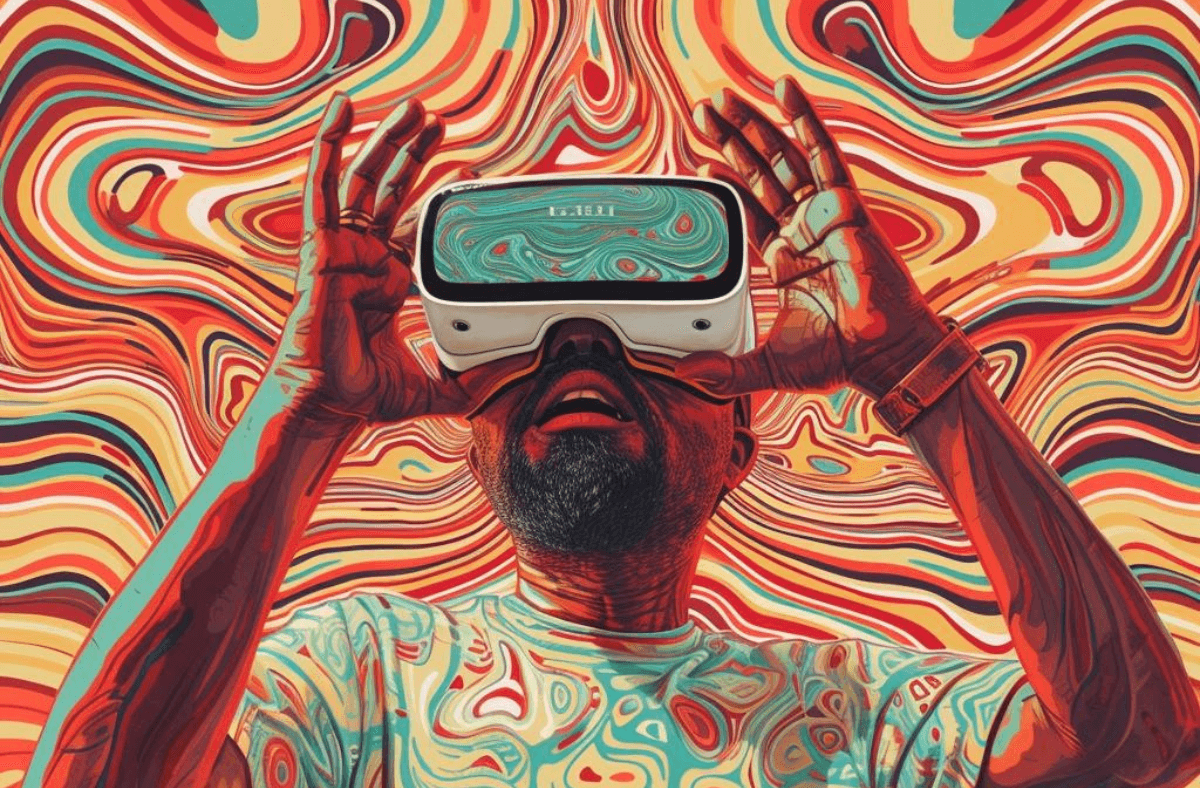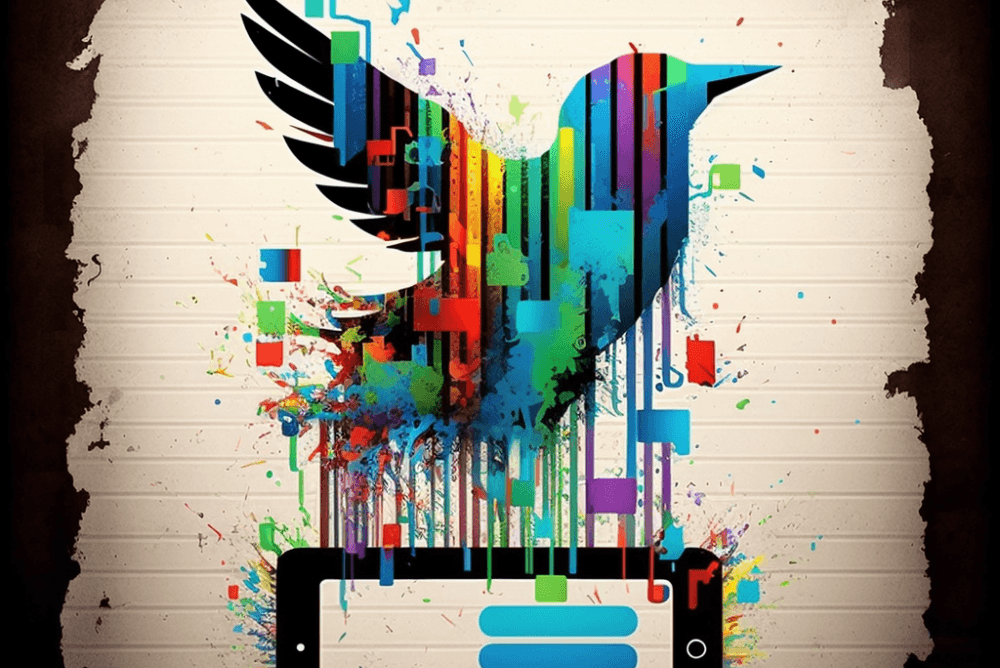Work, future, and AI: The three realms ahead of us
22 Apr 2024
Where will AI in work tools take us?
We talk to Agnieszka Porębska, a manager with over 20 years of experience and the CEO of Talent Alpha, a B2B platform encompassing Talent Marketplace and Talent Intelligence.
Autentika: Let's delve into the future of work and the impact of artificial intelligence on work tools and business apps. How do you think AI will shape our work? What tasks will become automated, and where will our focus shift?
Agnieszka Porębska: This revolution primarily integrates AI tools into intellectual work. While they're still in their infancy and require specialized knowledge to generate suitable prompts, it is undeniable that AI will eventually take over a significant portion of intellectual labor. This includes repetitive tasks already done by large language models as well as creative endeavors. As Professor Erik Guzik from the University of Montana underscored in our ”The Future of Work”, AI already outperforms humans in various facets of creativity, focusing not just on quantity or diversity but also on the originality of ideas – a truly revolutionary shift.
A time will come when the demand for intellectual work from humans will diminish. Responsibilities around the coordination between humans and machines will also surge, with this trend likely to persist for some time.
We can already see it with younger generations who increasingly immerse themselves in the digital realm, blurring the lines between digital and physical realities.
And how will this translate into your work and Talent Alpha's activities?
I foresee my work centering around two main areas. Firstly, as a manager, I will probably retain my role in management. Secondly, I envision my future in gathering and disseminating knowledge regarding current developments. Someone will need to interpret the new reality for others – and given my expertise in this area and my background in psychology, I'll likely serve as a translator between the real and digital worlds.
As for Talent Alpha, we're already acting as a bridge between different realms. We connect small enterprises with large companies, and match partners. On our platform, we have over a thousand technology firms, many of which are already implementing mechanisms or solutions based on artificial intelligence. Often, these smaller companies have already tested and implemented something – so we'll be enhancing the platform to connect them with the right audiences. We aim to showcase their work, possibly through roadshows in various cities across Poland and virtually.
I also see our role in thought leadership – we'll continue publishing reports, hosting webinars, and creating e-books and other materials. Additionally, we use and will continue to utilize artificial intelligence in marketing, sales, communication, and certain platform modules, such as matching specialists' skills with the tasks and roles they seek.
Artificial Intelligence as a recruiter?
It's already happening. Plenty of companies are leveraging AI to support their recruitment processes. This can occur at various levels, such as quickly summarizing a specialist's skills or assessing who best fits a particular role. AI can also assist in evaluating an individual's traits during recruitment, although changes must be made to implement the AI Act. According to this legislation, any AI support in European decision-making processes will be restricted, and decisions must be justified.
A great deal is happening in this area. With the help of our platform, we recently completed a significant project with one of our clients in the healthcare industry. Our platform can help create shortlists of top candidates and compare their skills with those of the ideal candidate. This allows for the quick selection of several individuals who best fit the role, facilitating more productive conversations.
Read also: AI in fitness apps: what comes next?
Is a machine more objective than a human?
Many ethical questions arise here because we still don't fully understand how algorithms work. Even the creators of these systems often don't know why one result is generated instead of another. With the AI Act in force, explanations will be necessary, especially in areas identified as high-risk. It's important to acknowledge that algorithms also carry their own biases – they were trained on specific data, raising questions about why that data was chosen and what the learning process entailed. There are still many uncertainties in this regard. However, I believe there's no turning back – companies will continue to utilize these mechanisms because they risk falling behind in competitiveness without these algorithms.
However, let’s look at the other side of the coin.
Today, much of this is largely a matter of chance. Those who have tried to find a job in the modern market and have sent out lots of resumes without getting any replies or have got stuck during the hiring process know this only too well. Why didn't they move forward? We don't know – maybe they truly didn't have the skills needed, or perhaps the person hiring was in a bad mood and didn't like the font color on a resume.
Similarly, when it comes to getting promoted, you might come across a boss who decides who gets promoted based on their mood, leaving good employees feeling left out. That's where AI tools come in, offering amazing chances to understand our skills, both the ones we learn and the ones we naturally have. That's what we're working on with our platform. We're talking about looking closely at a person's Talent Genome – everyone has a certain "genotype" of their talent, which can be explained scientifically, and AI can help with this. So when we know our skills, what drives us, what we like, and what we're good at, we can really find the job of our dreams, where we feel happy and fulfilled.
Will we interact with artificial intelligence as we do with a machine or as we do with a human? Will we also learn how to talk with algorithms?
Certainly, we'll be mindful of who we're talking to. Many of us already customize our resumes for specific systems – because we know that in the age of automation, it's not just about what we write but also how we write it. I believe it's inevitable that we'll try to "hack" the system and respond appropriately to bot behaviors. However, I don't entirely believe in the rapid development, at least in Europe, of solutions based on scanning our emotions or facial expressions because regulations will limit this area.
Our report discusses six trends related to the global job market's development. One of them is the tendency to attribute human traits to machines. When we chat with a bot, our mind naturally assigns human characteristics and expects behavior that matches our natural preferences. Conversely, the bot will adjust to us because it learns during interactions. Even today, adding "please" to a prompt can result in a better response. So, in response to your question, we will attribute human traits to robots.
Read also: Introducing AI concepts for Newsrooms
What impact will this have on our psyche? How will spending the whole day with robots and almost exclusively talking to them affect us?
We're already getting a taste of this, especially those who work remotely. Studies show that more people struggle with cooperating and physically coexisting in groups – especially if we're introverts. It's becoming increasingly difficult for us to build relationships, step out into the world, and engage in real interactions.
However, this will reduce our communication skills with humans, and machines themselves are not yet able to reach our level of thinking and feeling. This is evident in solutions such as virtual psychologists or therapists, who may initially be empathetic and able to answer questions but prove useless or even harmful in more complex situations.
Today, in many industries, humans are still more cost effective than AI, but what awaits us when the situation reverses? Will employing a human become a luxury? For example, will someone in the role of a People Partner be an exclusive employee benefit?
The question is how far we'll go in living with machines. I wouldn't be so radical in predicting shifts in the job market. Some AI-based solutions will indeed be cheaper and easier, but manual labor will also be undervalued because there will simply be more people seeking jobs than opportunities in the market, at least in the transitional period. So, it will be easier and cheaper to hire a person who is available immediately than to build an algorithm for a specific role.
I imagine that work related to interacting with people – including managerial work – will be increasingly supported by tools rather than being replaced by them. People will always prefer to talk to people.
Read also: Which AI tools in journalism are really worth the hype?
So, the Matrix isn't an immediate threat to us.
I don't think the threat is as severe as depicted in some science fiction movies – and for a simple reason. We'll need to find ways to keep people employed; they need jobs. Nobody wants to replace everyone with robots. Sure, businesses will do what's best for them, but replacing humans in every aspect isn't practical.
But I'm not entirely optimistic. While preparing to publish the report, we talked to experts from the Intelligent Leadership Hub, a partner in our report. It's a group of leaders, executives, and representatives from science, politics, and administration. As we were discussing future scenarios, we realized that anything could happen, which of course makes any outcome difficult to predict.
What skills will be most sought after in the job market in the coming years? I'm not referring to prompt engineering, but rather skills that cannot be replaced by AI.
Certainly, any manual skills and those related to physical work. It will be easier and cheaper to utilize human labor than to develop robots for everything.
As for valuable abilities, a timeless skill will be the ability to adapt easily to a changing reality, flexibility, and an open mindset. It's already said that it's not so much about what you know as what you're willing to learn, how flexible your mind is, how easily you learn, and how open-minded you are.
Read also: 7 bitter pills to swallow if you want AI in your newsroom
Where do we draw the line regarding using AI in our work tools? Is it a matter of common sense, or will we eventually encounter a technological barrier? There's already a lot of talk about AI making us lazy – do you agree?
Research suggests that, unfortunately, we're becoming less intelligent as a society, and our IQ is dropping. We don't have to do as many tasks, so we're not exercising our brains as much. While we might lose certain skills, we'll also gain new ones. However, we're moving towards laziness, opting for the path of least resistance. I'm concerned that some people might take advantage of this.
Do we need a structured education in this field? Who should be responsible for it?
We must present reality with hard facts, and numbers that can't be disputed. It's essential to highlight crucial data and educate young people and adults. But I see the primary need for a grassroots social movement. Because those at the "top" – governments, administrations, and those controlling various aspects of reality – usually aren't keen on people thinking too independently, questioning reality, and asking questions. The prevailing message is often about "making life easier and more enjoyable." We need a movement advocating the opposite: "Choose what's harder and requires effort – for yourself, your mind, your family, your growth."
If we don't start creating such initiatives from the ground up, we'll move towards more significant control over content, minds, messaging, and influencing the masses by a small group of people. And the world will begin to close in on itself. We'll have different narratives in different regions. Instead of becoming more open and breaking free from patterns, we'll be trapped in those imposed by groups wielding tools that influence our minds.
Will what you're talking about make us think critically, or will we end up with a two-speed world: one following a mass-driven pattern and the other niche, thinking independently?
The world will be split into three levels. The first level is the real world, where we'll still meet face-to-face for coffee. The second level is the metaverse, where it won't matter anymore whether something is true or not, whether it's real or created by AI. This phenomenon, known as virtualization, already exists, especially in politics, where the truth often doesn't matter. And the third level will be where the real and digital worlds meet. Rules, regulations, and certificates of authenticity will likely be imposed on it. And we'll naturally move between these three worlds without judging them as better or worse.

Agnieszka has led teams in both large international corporations and smaller IT sector firms. Additionally, she is a co-founder of the Intelligent Leadership Hub (ILH), an international organization gathering experts in innovative leadership. Agnieszka is also a guest lecturer at the University of Economics in Krakow (UEK) and collaborates with the European Labour Mobility Institute (ELMI), the largest European think tank focusing on mobility and the free movement of services within the European Union.



